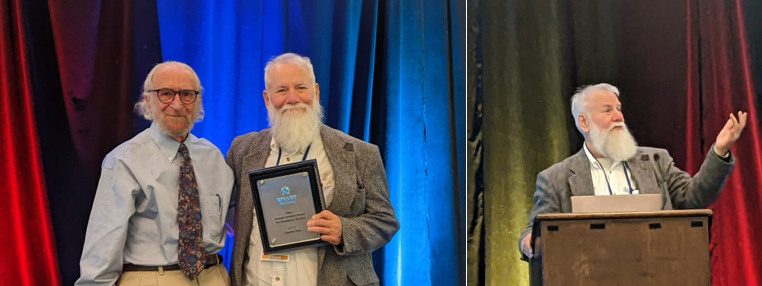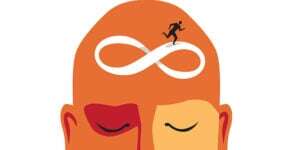Ted Alston, SMART Recovery Volunteer Meeting Facilitator
 Recovery groups tend to recite quips. For instance, “It’s easy to quit. I’ve done it lots of times.” Mark Twain may have said this of smoking, but the occasion is obscure1,2. Whether or not that one is his, Twain (1835-1910) was a keen observer of humanity. Accordingly, he had much to say about addictive behavior and recovery. Though literary fiction cannot settle controversies, it can help us to think about them. Consider The Adventures of Tom Sawyer (1876).
Recovery groups tend to recite quips. For instance, “It’s easy to quit. I’ve done it lots of times.” Mark Twain may have said this of smoking, but the occasion is obscure1,2. Whether or not that one is his, Twain (1835-1910) was a keen observer of humanity. Accordingly, he had much to say about addictive behavior and recovery. Though literary fiction cannot settle controversies, it can help us to think about them. Consider The Adventures of Tom Sawyer (1876).
In an early scene3, young Tom shows that the consequences of an event depend on one’s beliefs about it. He is stuck with the odious task of having to whitewash a long fence. Other kids mock his plight. Tom pretends that he relishes the chore and does not want to share it. The mockers are then happy to pay Tom for their privilege of whitewashing his fence. “If he hadn’t run out of whitewash, he would have bankrupted every boy in the village.”
You can argue that the episode is not strictly an example of a SMART exercise. Tom manipulated others more than he improved himself. That aspect is part of the delicious humor. Furthermore, it would have been hard to convince Sawyer or Twain that they were powerless over the beliefs of others. I cannot prove any philosophical point by means of a novel. It’s just something to ponder.
There is a related lesson when Tom joins “the new order of Cadets of Temperance” and promises to abstain from smoking, chewing, drinking, and profanity during his membership4. He knows he should not do those bad things, and he is attracted to the parades and regalia, including the showy red sash. “Now he found out a new thing—namely, that to promise not to do a thing is the surest way in the world to make a body want to go and do the very thing.” Because the urges were tormenting, he quit in two days. “The Cadets paraded in a style calculated to kill the late member with envy.” But, on the plus side, Tom lost the urges. “The simple fact that he could, took the desire away, and the charm of it.” Tom had joined up when he was not troubled by addiction, but that twist is part of the humor. The story illustrates the futility of simply telling people to stop. It is also interesting that vice can be “charming” on the basis of its being forbidden. The parable is delicious fruit for thought.
The appeal of breaking rules is ever-present in Twain. It is why Tom and Huck are endearing. Indeed, it is initially why Tom admired Huck, “the juvenile pariah of the village.”5 Tom and other kids were pirate and Robin Hood wannabes. They sought the company of Huck the supposed pariah because it was forbidden. The ban was rightly so as Huck was the “son of the town drunkard.” Yet, “every harassed, hampered, respectable boy” was naturally drawn to “the romantic outcast” who “had everything that goes to make life precious.” (It would be good to try to list those things.) The romance of wild disobedience might be refreshing but can sometimes factor into unhealthy behavior. These considerations could enter into a cost-benefit analysis.
Twain suggests a putative benefit of intoxication.6 An interesting idea occurred to broken-hearted Tom when he fell out of the favor of fair Becky Thatcher. Tom thought, “Ah, if he could only die TEMPORARILY.” The stress is Twain’s. The stated wish is provocative.
Poor old Muff Potter encounters a cost of impairment7. He is framed for a murder while, as was often enough, he was under the influence of alcohol. He comes to believe his guilt, lamenting from jail, “Well, boys, I done an awful thing—drunk and crazy at the time, that’s the only way I account for it, and now I got to swing for it, and it’s right.” And so it would go, save for the intrepidness of Tom.
Costs and benefits of behaviors can seem to depend on the heat of the moment. Tom was once terrified by a thunderstorm.4 “He believed he had taxed the forbearance of the powers above to the extremity of endurance. … By and by the tempest spent itself and died without accomplishing its object. The boy’s first impulse was to be grateful, and reform. His second was to wait—for there might not be any more storms.” Tom was not the only person to reform but soon reconsider. While he was protected in isolation by a case of measles, a “revival” passed through town4. On emergence from quarantine, Tom was dismayed to find that everyone else had been reformed while “he alone of all the town was lost, for ever and ever.” Fortunately, the loneliness resolved in a few days. For instance, he “found Joe Harper and Huck Finn up an alley eating a stolen watermelon. Poor lads! They, like Tom, had suffered a relapse.”
Tom and his contemporaries exhibit a lot of magical thinking. For instance, the behavior of a doodle-bug can decide questions6. Fortunately, superstitious communication of that ilk is of only historical interest now that we have the internet and so forth.
For other Twain comments on addiction and recovery, I recommend the hyperbolic nonfiction of Following the Equator (1897). One might fault Twain for “making light” of smoking in both Sawyer and Equator. Even so, he therapeutically stimulates reason, emotional introspection, and, maybe, decent behavior.
REFERENCES
1 quoteinvestigator.com/2012/09/19/easy-quit-smoking/
2 Horton BT. The outlook in thrombo-angiitis obliterans. JAMA 1938 Dec 10; 111(24):2184-9
3 Chapter 2
4 Chapter 22
5Chapter 6
6 Chapter 8
7Chapter 23
Partner with us, make a difference
SMART Recovery is a 501(c)3 charitable organization and is heavily reliant on volunteers for ongoing, daily operations. Ted, who wrote this blog post, is one of these volunteers.




